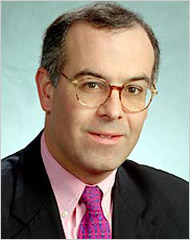February 1st, 2014
Of course, Zen therapy does not pinpoint only existential angst by mitigating cravings for universal meaning. It also influences the pattern-making and pattern-matching we use day-to-day. Now, our pattern machinery basically works quite well, look how far it’s gotten us. But at the same time there are many ways in which it’s broken, or should I say problems in how we use it. The main issue is how we try to apply patterns when they don’t really fit, how we apply them with no flexibility, how we fail to tweak the patterns as we are applying them. Of course there has to be an essence of the pattern, which is the point of its existence, but at the same time we have to keep evolving the patterns, choose the right patterns to apply, adapt and refine them. Our built-in reward system for finding and matching patterns can lead us to use patterns which aren’t really relevant, or to try to stuff a pattern down some situation’s throat.
Dogen’s Zen therapy not only relieves our cravings for patterns, and leaves us comfortable even in pattern-less situations, but also acts as a kind of lubricant for our patterning systems. It gradually rewires our brains so we more easily find new patterns, modify existing patterns, and choose the right pattern.
But let’s go back and parse a bit more of what Dogen was saying. He refers to “enlightened ones”. This, obviously, in terms of the patterns we know and love about sainthood and rarified states of being, must mean someone who is at a completely different level in terms of grasping deep, intricate patterns about existence, right? No, it just means a person who through intensive therapy has ceased addictively looking for non-existent patterns. He refers to “ultimate awareness”. This, obviously, must mean some exalted state of being achievable only by some sainted person in an altogether different league from ourselves, right? No, it just means someone who has stopped spending his energy seeking unseekable patterns and who therefore is able to focus on the reality in front of him.
Posted in religion | No Comments »
January 29th, 2013
The decision to start Zen could be treated more like a decision to start taking a painting class at the local adult education center. You could go to one class and not go back, or go for one quarter, or keep going for ten years, or keep going until you die. I guess I also disagree with the people who say this is a really big deal and is going to be real hard work and you have to really make a commitment or else the whole thing is a complete waste of time. Wrong! The thing about Zen is that, and this fits in with my theory that’s basically about rewiring your neurons, or neuroplasticity if you prefer fancy words, you do a little bit of it and experience a little effect or do more of it and experience more or do a whole lot and become an enlightened Zen master. It’s linearly scalable, in other words. If you started off by going to a dojo once a week and sitting with them, and maybe meditating 30 minutes per day, then after a month or two no, you would not have some kind of life-changing realization, but you would notice changes in the way you look at things which would be refreshing and helpful. A little bit of rewiring.
There is another thing about Zen which is sort of like the way that when you work out at the gym, your body changes in a way which helps you be more fit and healthy even when you don’t work out, you consume calories more efficiently, etc. As you keep doing Zen, by which I mean meditation, not reading books or listening to talks, you develop the ability over time to use every moment to enhance the way you view the world, not just when you’re meditating. Or to put it another way, you sort of learn to meditate as you’re going about your daily life, or conversely, you begin to see that your daily life is a kind of meditation, or perhaps that meditation is nothing more than a sort of concentrated form of daily life. As you get there, you might find yourself wanting to meditate more, and kick it up to two 30-minute sessions per day, as opposed to a thought process that says hey, I’m supposed to be doing this Zen thing, gotta work harder at it, I told myself I was really going to get into this, so I gotta buckle down.
Posted in religion | No Comments »
January 28th, 2013
It would be one thing if our unmet need for existential closure meant only that we had occasional unsettling attacks of meaninglessness, or a vague cloud of doubt hanging over our heads as we went about our daily lives. But unfortunately this nagging psychic unease also interferes with us just getting done our day-to-day business as normal human beings, as if we were lugging around a 20-pound sack of potatoes everywhere we went. For all the design flaws in the whole homo sapiens mind-body system that the messy evolutionary process has bequeathed to us, we basically work remarkably well. We’re endowed with well-functioning instincts and behaviors. We’re lithe. But the bag of potatoes bogs us down, gets in our way, disrupts our rhythm, saps our mojo, puts us off our game.
Then there’s a second order effect which is that our inability to find the big pattern we crave saps our confidence. We can’t find it–so maybe there’s something wrong with us! Maybe there’s other patterns we’re missing! Maybe other people have found the pattern and we’re inferior to them! This fear, this complex is yet more sand in the gears. If the basic existential pain is not sufficient motivation for us to try to do something about the problem, this negative effect on our basic functioning certainly is.
Read the rest of this entry »
Posted in neurotheology | No Comments »
January 26th, 2013
Here is the theory I have arrived at. Humans are successful animals because we have developed large brains with the capability of identifying and matching patterns of many varieties. These patterns could be called concepts, or theories, or hypotheses, or just rules of thumb. The patterns can range from the highly concrete (“a chair”) to the social (“a family”) to the philosophical (“happiness”).
Evolution equipped us not only with the ability to handle patterns but also a reward mechanism for exercising it, which like other reward systems takes neurochemical form. You will know this as the “Eureka” moment when something suddenly “makes sense” (meaning you found a new pattern it fits into, or an old one, or a modification to an old one), or, less dramatically, the little satisfying mental click when something falls together.
Although it is not directly related to my overall topic here, the human inclination, or one might say compulsion, to believe in God can be tied to this neurotheoretical notion of pattern-finding and pattern-matching (and thus the somewhat unfortunate term “neurotheology”), in the sense that a belief in God again activates our reward systems for finding patterns, in this case a “pattern” or framework that ties together disparate and otherwise unexplainable things. Of course, this fundamental biological motivation that results in a notion of the supernatural is then embroidered and modulated by any number of social and political factors, and people have written entire books on the subject, but underlying it all is the human thirst to understand (in other words, find patterns), which, again, has a neurobiological basis.
Thirst in the very real sense, because reward is the flip side of desire, be it for water or anything else, and desire merely one stage on the path to addiction. Those neurochemicals sloshing around in our brains making us feel great when we have sex are also capable, by their absence, of making us sad, horny, jittery, or desperate. It is when this deprivation becomes so serious that we seek to satisfy it, even at great cost to ourselves, that we call it addiction.
Evolution made a wise enough choice in developing these mechanisms; they mostly serve us well when it comes to nourishment, or reproduction, or social relationships, or even intellectual pursuits, such as in the urge Einstein felt to discover the pattern which resulted in the theory of relativity. But what purpose is served by the deep emotional unease, pain, or even agony, that we feel when we are unable to satisfy our cravings for finding patterns, especially big patterns, or the biggest pattern of all, which is how all these other patterns fit together–the “meaning of life” (yes, patterns are essentially identical to what we call “meaning”)–even in the case where there is no pattern to be found? (The millions of people who are desperately seeking the big pattern by pursuing whatever form of religion or practice or devotion or philosophy are, at one level, hardly different from the crack addict furiously looking for his next fix. Of course, just as not everyone develops an addition to drugs, not everyone develops an addiction to finding patterns. In both cases, I suppose it is, like most other things, a matter of so-called epigenetics.
Posted in neurotheology | No Comments »
May 28th, 2008
 Another interesting social issue related to the is its effect on our penal system especially the millions of folks we’ve got locked up right now. Take a prisoner with a 50-year sentence. If he has to serve his entire sentence he wouldn’t be out until 2050, but by that time we expect inconceivable advances in genetics, nanotechnology, and artificial intelligence/robotics, all of which could have implications for his case. Read the rest of this entry »
Another interesting social issue related to the is its effect on our penal system especially the millions of folks we’ve got locked up right now. Take a prisoner with a 50-year sentence. If he has to serve his entire sentence he wouldn’t be out until 2050, but by that time we expect inconceivable advances in genetics, nanotechnology, and artificial intelligence/robotics, all of which could have implications for his case. Read the rest of this entry »
Posted in scitech | 2 Comments »
May 26th, 2008
 Ray Kurzweil’s The Singularity is Near ( ) is one of those books that really changes the way you look at things.
Ray Kurzweil’s The Singularity is Near ( ) is one of those books that really changes the way you look at things.
For instance, when the Supreme Court rules on virtual child porn as it did recently ( ), you see that the real issue goes far beyond Photoshopping some kidpix. Read the rest of this entry »
Posted in scitech | 1 Comment »
May 22nd, 2008

Sakiko has started a blog at . Expect lots of cat pictures.
Tags: S
Posted in Uncategorized | 1 Comment »
May 21st, 2008
 Rev. Hubert Nearman, O.B.C. has put out an ambitious new translation of Shobogenzo, a 14-year labor of love, now available from the Shasta Abbey website.
Rev. Hubert Nearman, O.B.C. has put out an ambitious new translation of Shobogenzo, a 14-year labor of love, now available from the Shasta Abbey website.
Posted in dogen | 2 Comments »
May 21st, 2008
 A recent college graduate I know recently found himself most unhappy in his new job. But was there something really wrong with the company he had had such high hopes for, or was it merely a case of the freshman blues? Where to turn for advice? Friends? Parents? Professors?
A recent college graduate I know recently found himself most unhappy in his new job. But was there something really wrong with the company he had had such high hopes for, or was it merely a case of the freshman blues? Where to turn for advice? Friends? Parents? Professors?
Read the rest of this entry »
Posted in scitech | 2 Comments »
May 19th, 2008
 The New York Times published a last week on the topic of meta-neurotheology: the context and evolution of the social discussion about neurotheology. Author David Brooks points out the huge impact that the neuroscience revolution is having and will have on our culture’s views of God, religion, and science. His main point: the direction we will take as the discussion unfolds is not towards atheism and pure materialism, but rather something he calls neural Buddhism: “new movements that emphasize self-transcendence”, based on beliefs in a dynamic self , shared morals, elevated experience, and a new concept of God .
The New York Times published a last week on the topic of meta-neurotheology: the context and evolution of the social discussion about neurotheology. Author David Brooks points out the huge impact that the neuroscience revolution is having and will have on our culture’s views of God, religion, and science. His main point: the direction we will take as the discussion unfolds is not towards atheism and pure materialism, but rather something he calls neural Buddhism: “new movements that emphasize self-transcendence”, based on beliefs in a dynamic self , shared morals, elevated experience, and a new concept of God .
Read the rest of this entry »
Posted in neurotheology | No Comments »

 Another interesting social issue related to the is its effect on our penal system especially the millions of folks we’ve got locked up right now. Take a prisoner with a 50-year sentence. If he has to serve his entire sentence he wouldn’t be out until 2050, but by that time we expect inconceivable advances in genetics, nanotechnology, and artificial intelligence/robotics, all of which could have implications for his case.
Another interesting social issue related to the is its effect on our penal system especially the millions of folks we’ve got locked up right now. Take a prisoner with a 50-year sentence. If he has to serve his entire sentence he wouldn’t be out until 2050, but by that time we expect inconceivable advances in genetics, nanotechnology, and artificial intelligence/robotics, all of which could have implications for his case.  Ray Kurzweil’s The Singularity is Near ( ) is one of those books that really changes the way you look at things.
Ray Kurzweil’s The Singularity is Near ( ) is one of those books that really changes the way you look at things. Rev. Hubert Nearman, O.B.C. has put out an ambitious new translation of Shobogenzo, a 14-year labor of love, now available from the Shasta Abbey website.
Rev. Hubert Nearman, O.B.C. has put out an ambitious new translation of Shobogenzo, a 14-year labor of love, now available from the Shasta Abbey website. A recent college graduate I know recently found himself most unhappy in his new job. But was there something really wrong with the company he had had such high hopes for, or was it merely a case of the freshman blues? Where to turn for advice? Friends? Parents? Professors?
A recent college graduate I know recently found himself most unhappy in his new job. But was there something really wrong with the company he had had such high hopes for, or was it merely a case of the freshman blues? Where to turn for advice? Friends? Parents? Professors? The New York Times published a last week on the topic of meta-neurotheology: the context and evolution of the social discussion about neurotheology. Author David Brooks points out the huge impact that the neuroscience revolution is having and will have on our culture’s views of God, religion, and science. His main point: the direction we will take as the discussion unfolds is not towards atheism and pure materialism, but rather something he calls neural Buddhism: “new movements that emphasize self-transcendence”, based on beliefs in a dynamic self , shared morals, elevated experience, and a new concept of God .
The New York Times published a last week on the topic of meta-neurotheology: the context and evolution of the social discussion about neurotheology. Author David Brooks points out the huge impact that the neuroscience revolution is having and will have on our culture’s views of God, religion, and science. His main point: the direction we will take as the discussion unfolds is not towards atheism and pure materialism, but rather something he calls neural Buddhism: “new movements that emphasize self-transcendence”, based on beliefs in a dynamic self , shared morals, elevated experience, and a new concept of God .